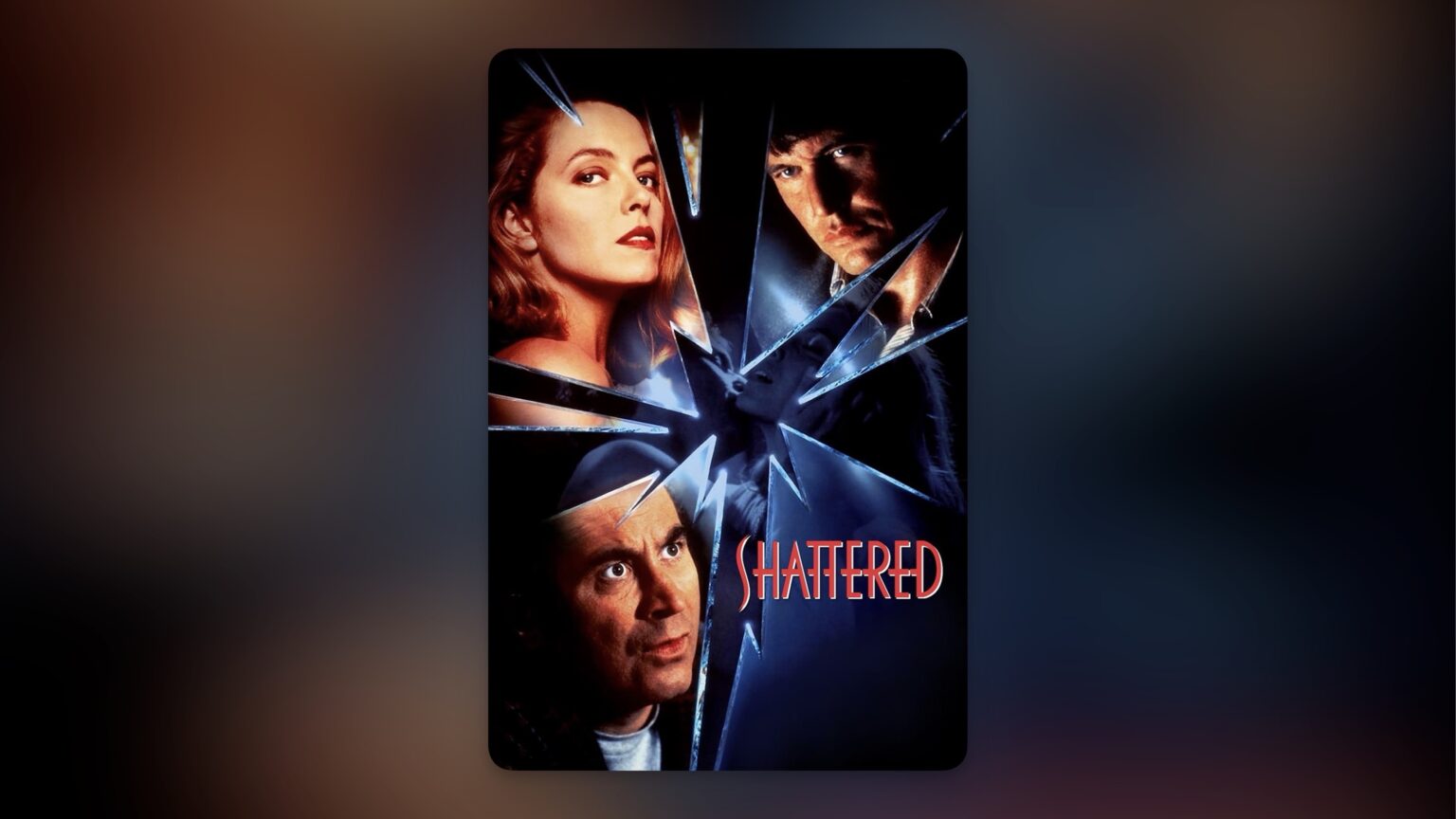All right… Shattered, Wolfgang Petersen’s 1991 foray into the world of amnesia, mistaken identity, and… shattered stuff. Imagine you’re at a meticulously planned dinner party. The host, Petersen, has clearly gone to great lengths. The table is set with gleaming silverware (László Kovács’ cinematography), the wine is a vintage you recognize (Alan Silvestri’s score), and the conversation starters are intriguing – a car crash, a disfigured face, a lost memory.
But then, as the evening progresses, something feels… off.
The main course arrives, and it’s Tom Berenger. Now, Berenger is a dish best served with a certain rugged charm, a hint of vulnerability beneath the surface. He’s committed, he’s earnest, he’s selling the hell out of this amnesiac architect, Dan Merrick, who’s trying to piece together his life after a horrific accident. If there’s a problem it’s that he’s too perfect. Even after supposedly undergoing extensive facial reconstruction, he’s still got that leading-man jawline, those piercing eyes. It’s like the surgeons were aiming for “traumatized survivor” but accidentally dialed up “cover model.” It’s a minor quibble, maybe, but in a film so reliant on believability, it’s a crack in the façade.
And speaking of the 80s (even though it came out in 91), the film is steeped in it. It is awash in that aesthetic. It’s the kind of movie where characters have intense conversations in dimly lit rooms, where the fog machines work overtime, and where every woman seems to own at least four power suits. It’s a nostalgia trip, for sure, a reminder of a time when thrillers didn’t shy away from melodrama, when a twist ending was mandatory.
We’re fascinated by things that don’t quite fit. Shatteredpresents us with a classic jank-fit scenario: a man who wakes up with no memory, a life seemingly assembled from mismatched puzzle pieces. His wife, Judith (Greta Scacchi), is beautiful, devoted, yet…there’s a flicker of something else in her eyes. His business partner, Jeb (Corbin Bernsen), is supportive, friendly, yet…there’s a tension in his handshake.
The film lays out these anomalies. We’re presented with clues, red herrings, and the ever-present question: what reallyhappened? We’re drawn into Dan’s quest for truth, his desperate need to understand his past, even as that past seems to shift and change with every new revelation.
The brilliance, and the potential downfall, of Shattered is in its commitment to the twist. It’s a film that wants to pull the rug out from under you, to make you question everything you’ve seen. And it succeeds, to a point. The revelation of Dan’s true identity is genuinely shocking, a moment that forces you to re-evaluate everything that came before.
Is it too clever? Does the twist, in its desire to surprise, sacrifice plausibility? Does it become a talking dog – impressive, but ultimately more about the trick than the substance? Depends on what the dog has to say.
The film hinges on a central conceit: that a person’s identity can be so thoroughly erased and replaced, not just in their own mind, but in the minds of everyone around them. It’s a fascinating idea, one that taps into our deepest fears about the fragility of self. But Shattered pushes this idea to its breaking point, and perhaps a little beyond.

